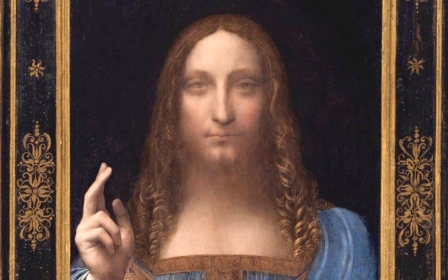Spoiler alert: Saudi television network bans Turkish soap operas

ISTANBUL, Turkey – A Saudi-owned television network has announced it will pull hugely popular Turkish dramas from its schedules, in what experts inside Turkey say is an attempt by Saudi Arabia's crown prince to pacify clerics already outraged by his push to modernise the kingdom.
It was reported on Monday that the Arab world’s largest private broadcaster, MBC, was ordered to stop broadcasting often racy Turkish television shows. The MBC Group is Dubai-based and controlled by Saudi investors. MBC did not state specifically where the order eminated.
But the decision adds a new dimension to growing tensions between Turkey and the Saudi Arabia-United Arab Emirates axis in the row over Qatar's support for, among other things, the Muslim Brotherhood, which the Saudis and Emiratis have branded a "terrorist" organisation.
Zekeriya Kursun, the president of ORDAF, a Turkish think tank specialising in research on the Middle East and Africa, told MEE that while there were plenty of reasons behind the Saudis imposing such a ban, he believed internal politics were the chief among them.
“Mohammad Bin Salman enraged the kingdom’s clerics when he loosened the rules on cinema and concerts. This is very likely a move to pacify those clerics to an extent,” he said.
Kursun said there has been pressure for a long time now to block Turkish programmes that often take up prime time slots from both Lebanese and Egyptian producers and filmmakers.
“Especially for the Egyptian film and TV industry, the success of Turkish programmes has cost them dearly,” he said.
To Kursun, the ban will help the Saudis and Emiratis show their allies that they are supporting them while also preach at home that they are battling undesirable and foreign cultural influences.
Before the recent - and most likely politically motivated if not sponsored - spate of Turkish Ottoman history-based dramas, Turkish television programming was still a major hit in the Arab world.
To many Middle Eastern viewers, drawn-out Turkish soap operas combining love affairs, drama and mystery, more than just being quality television productions, represented hope that it was possible to harmoniously merge east and west without sacrificing local identity.
“Part of the motivation behind this ban might have been that depiction of a lifestyle choice that is not an option in the Gulf,” said Kursun.
According to film critic Burcak Evren, the decision cannot be anything but political. He also said the financial cost to the Turkish industry would be minimal.
“First of all a blanket ban means it is purely political. Turkish television programmes encompass such a wide range," he said.
"If it was just the historical-based ones that were banned, we could say ok they don’t agree with that view. The same if it was for reasons of morality."
Who will suffer financially?
Evren said the financial impact of such a ban on the multi-million dollar Turkish film and television industry would be minimal.
“Producers and TV/film firms have their costs covered before they commence filming via the deals they make with domestic broadcasters,” he said.
“Other than that Turkish television has never been more popular. It has a market in eastern Europe, Africa and even Latin America.”
In 2014, the gross revenues of Turkey’s 10 biggest production firms exceeded $150m. The industry has continued to grow.
It was MBC that launched the trend in 2008 that would see the popularity of Turkish dramas soar in the Arab world. That year it began broadcasting a Turkish drama called Noor.
The broadcaster said an estimated 85 million people in the Middle East and Africa had tuned in for its final episode in 2010.
Hayek said the ban immediately affects six programmes and was likely to hit revenues and viewership built up over more than 10 years.
However, it also opened opportunities for programme makers in countries such as Qatar and Lebanon to fill the gap.
"This may be an incentive for Arab producers to create high-level Arabic drama that can be a good alternative to those taken off the air," Hayek said.
For Kursun, it represents another front in the increasingly publicly waged spat between the Saudi-UAE axis and Turkey since the Qatar crisis last year when Ankara sided with Doha, as Saudi Arabia, the UAE, Egypt and Bahrain tried to diplomatically and physically isolate their tiny neighbour.
It is a spat that has gone from allegations of financing coup attempts to street names being changed in Ankara after a UAE minister denigrated an Ottoman-era commander, Fahrettin Pasa, based in the Saudi holy city of Medina.
“There are so many dimensions to this ban. Another one is that Bin Salman has also launched a big drive on restoring historical places in the kingdom, but with their own Saudi interpretation," Hayek said.
"And then you have these Turkish historical-based programmes being beamed into people’s homes who are very keen to learn about their past and heritage. They can’t be happy about that.”
Stay informed with MEE's newsletters
Sign up to get the latest alerts, insights and analysis, starting with Turkey Unpacked
Middle East Eye delivers independent and unrivalled coverage and analysis of the Middle East, North Africa and beyond. To learn more about republishing this content and the associated fees, please fill out this form. More about MEE can be found here.




